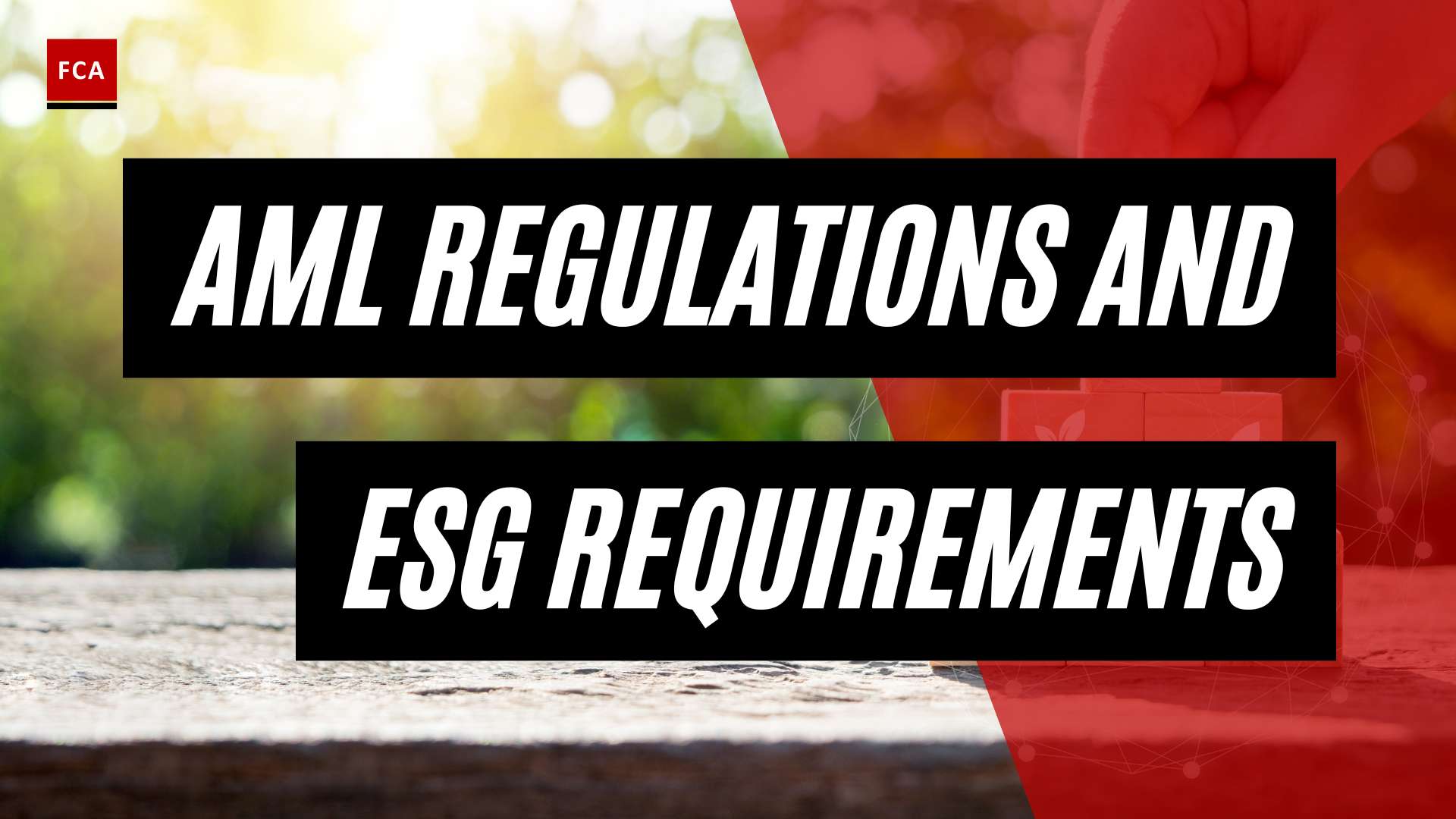AML Training for Accountants
Accountants play a crucial role in the prevention and detection of money laundering activities, making AML training essential for them. By undergoing AML training, accountants can familiarize themselves with anti-money laundering regulations, recognize suspicious financial activities, and understand compliance requirements. This training equips accountants with the knowledge and skills necessary to fulfill their obligations in the fight against money laundering.
Importance of AML Training
AML training for accountants covers various crucial topics, including understanding money laundering and terrorist financing, recognizing red flags, complying with regulations, and reporting suspicious activities to relevant authorities. By gaining a deep understanding of these subjects, accountants can actively contribute to the prevention and detection of money laundering activities.
Accountants need to be aware of the evolving techniques and methods used by criminals to launder money. AML training helps accountants stay updated on the latest regulations and industry best practices, enabling them to identify red flags, assess risks, and report suspicious transactions promptly to the relevant authorities (AML UAE). By being vigilant and knowledgeable, accountants can play a vital role in combating money laundering and other financial crimes.
Regulatory Requirements for Accountants
Money laundering regulations apply to various business sectors, including financial services, accountants, estate agents, law firms, and other businesses undertaking regulated work (VinciWorks). The Money Laundering Regulations 2017 mandate relevant businesses to be supervised and register with HMRC if they are not already covered by a professional body such as the Law Society.
To ensure compliance with the law, businesses covered by the regulations, including accountants, must undergo anti-money laundering training. By completing AML training, accountants fulfill their regulatory obligations and contribute to the overall integrity of the financial system.
By investing in continuous AML training and education programs, accounting firms and professionals can meet regulatory requirements and mitigate the risks associated with money laundering. Staying abreast of evolving AML regulations and enforcement trends is essential for accountants to fulfill their compliance obligations effectively. A commitment to ongoing training demonstrates a dedication to upholding the highest standards of professionalism and ethics.
In essence, AML training for accountants enhances individual proficiency and awareness while contributing to the overall effectiveness of AML programs within organizations. By promoting a strong culture of compliance and ethics, accountants safeguard their firms against financial crimes, regulatory violations, and reputational damage (AML UAE). Collaborative efforts between accountants, compliance officers, and law enforcement agencies are vital for creating a robust defense mechanism against money laundering threats.
By prioritizing AML training, accountants can ensure they are well-equipped to detect and report suspicious financial activities, protect their firms, and contribute to the global fight against money laundering.
Key Topics in AML Training
AML training for accountants covers essential topics that enable them to effectively combat money laundering and comply with regulatory requirements. Understanding these key topics is crucial for accountants to recognize and prevent suspicious financial activities. The key topics in AML training include:
Understanding Money Laundering
To effectively combat money laundering, accountants need a comprehensive understanding of how it occurs and the techniques used by criminals. AML training provides accountants with insights into the various stages of money laundering, including placement, layering, and integration. It also educates them on the different methods employed to conceal the origins of illicit funds. By understanding the intricacies of money laundering, accountants can better identify suspicious transactions and patterns.
Recognizing Red Flags
AML training equips accountants with the knowledge and skills to identify red flags that may indicate potential money laundering activities. These red flags include unusual transactions, inconsistent business activities, complex transaction structures, frequent cash deposits or withdrawals, and transactions involving high-risk jurisdictions. By recognizing these warning signs, accountants can take appropriate action and report suspicious activities to the authorities.
Compliance with AML Regulations
Compliance with AML regulations is of utmost importance for accountants. AML training provides them with a comprehensive understanding of the legal framework related to AML regulations, including the laws, regulations, and reporting requirements. Accountants learn about the obligations placed upon them to conduct customer due diligence, report suspicious transactions, and maintain proper documentation. By staying up to date with the latest AML regulations, accountants can ensure compliance and contribute to the fight against financial crimes.
Accountants undertaking AML training gain the knowledge and skills necessary to fulfill their responsibilities in preventing money laundering. By understanding money laundering, recognizing red flags, and complying with AML regulations, accountants play a crucial role in safeguarding the financial system from illicit activities. To explore more about AML training and resources, refer to our AML training resources section.
Reporting and Documentation
When it comes to Anti-Money Laundering (AML) training for accountants, understanding the importance of proper reporting and documentation is crucial. Accountants trained in AML are equipped with the knowledge and skills necessary to fulfill their role in detecting and preventing money laundering activities. In this section, we will explore three key aspects of reporting and documentation in AML training: suspicious transaction reporting, customer due diligence, and maintaining proper documentation.
Suspicious Transaction Reporting
AML-trained accountants are taught to recognize red flags and indicators of potentially suspicious transactions. When such transactions are identified, it is essential for accountants to promptly report them to the relevant authorities. This reporting plays a vital role in preventing and combating money laundering and other financial crimes.
Accountants need to understand the reporting requirements specific to their jurisdiction and follow the established procedures for reporting suspicious transactions. By doing so, accountants contribute to the overall efforts in fighting against money laundering. This timely reporting ensures that law enforcement agencies and regulatory bodies can investigate and take appropriate action.
Customer Due Diligence
Customer due diligence is a fundamental aspect of AML training for accountants. It involves thorough and ongoing assessments of customer relationships to identify and verify their identities, assess the risks associated with their activities, and understand the nature of the business relationship.
Accountants trained in AML learn the importance of conducting customer due diligence to ensure that they are not unwittingly involved in illegal activities. By implementing robust due diligence procedures, accountants can mitigate the risk of money laundering and terrorist financing. This includes identifying politically exposed persons (PEPs) and implementing internal controls to monitor and assess any unusual or suspicious activities.
Maintaining Proper Documentation
Proper documentation is a critical component of AML compliance. Accountants are trained to maintain accurate and comprehensive records of transactions, customer due diligence, and other relevant information. These records serve as evidence of compliance with AML regulations and can be crucial in demonstrating due diligence in the event of an audit or investigation.
Maintaining proper documentation also facilitates internal reviews and risk assessments within an organization. It allows accountants and compliance professionals to monitor transactions, identify patterns, and detect any irregularities or potential money laundering activities.
By adhering to meticulous documentation practices, accountants contribute to the overall effectiveness of AML efforts and help create a compliance culture within their organizations.
Accountants trained in AML are well-equipped to handle reporting obligations, conduct customer due diligence, and maintain proper documentation. These skills play a crucial role in preventing and detecting money laundering activities. By staying updated on regulations, engaging in case studies and practical guidance, and utilizing technology for AML compliance, accountants can continue to enhance their AML skills and knowledge. This ongoing training and development enable accountants to effectively contribute to the fight against money laundering and protect the integrity of the financial system.
Consequences of Non-Compliance
Ensuring compliance with anti-money laundering (AML) regulations is of utmost importance for accountants and their firms. Failing to comply with AML regulations can have severe consequences, including reputational damage, financial penalties, and even criminal charges in some cases.
Reputational Damage
Non-compliance with AML regulations can significantly harm the reputation of accountants and the firms they work for. The consequences of being associated with money laundering or other illicit activities can lead to a loss of trust from clients, business partners, and the public. Reputational damage can have long-lasting effects and may even result in a loss of business opportunities.
Financial Penalties
Regulatory bodies and authorities impose financial penalties on individuals and firms found to be non-compliant with AML regulations. The exact amount of the penalties can vary depending on the jurisdiction and the severity of the non-compliance. These penalties can be substantial, potentially causing significant financial strain on the individuals and firms involved. It’s important for accountants to understand and adhere to AML regulations to avoid such financial penalties.
Criminal Charges
In certain cases of severe non-compliance, criminal charges may be brought against accountants and their firms. This typically occurs when there is evidence of intentional involvement in money laundering activities or a willful disregard for AML regulations. Criminal charges can result in severe legal consequences, including fines, imprisonment, and damage to professional reputations.
To mitigate the risks associated with non-compliance, it is crucial for accountants to undergo AML training and stay updated on the latest regulations. By doing so, they can ensure compliance, protect their reputation, and avoid the financial and legal consequences that come with non-compliance. To explore AML training options for accountants, check out our AML training resources that include e-learning programs, online training solutions, and webinars.
Remember, AML compliance is a shared responsibility among accountants, firms, and regulatory bodies. By actively engaging in training and implementing effective AML measures, accountants can play a vital role in combating money laundering and maintaining the integrity of the financial system.
Enhancing AML Skills and Knowledge
To effectively combat financial crimes and ensure compliance with anti-money laundering (AML) regulations, accountants must continuously enhance their skills and knowledge. This section explores three key aspects that can contribute to the ongoing development of AML expertise: staying updated on regulations, case studies and practical guidance, and utilizing technology for AML compliance.
Staying Updated on Regulations
In the ever-evolving landscape of AML regulations, it is crucial for accountants to stay updated with the latest developments. This includes being aware of changes in local and international AML laws, regulations, and guidelines. By staying informed, accountants can efficiently identify suspicious activities and report them to the appropriate authorities, contributing to the collective efforts to combat financial crimes (Financial Crime Academy).
Accountants can stay updated through various means, including attending AML training webinars, participating in industry conferences, and subscribing to AML newsletters and publications. These resources provide valuable insights into emerging trends, best practices, and regulatory updates. Additionally, online AML training programs and videos offer a convenient way to access up-to-date information and enhance knowledge in specific areas of AML compliance (aml training webinars, aml training videos, online aml training programs).
Case Studies and Practical Guidance
Learning from real-world scenarios through case studies and practical guidance can significantly enhance an accountant’s understanding of AML practices and challenges. By analyzing past cases of money laundering and financial crimes, accountants gain valuable insights into the techniques used by criminals and the vulnerabilities within financial systems. They can then apply this knowledge to their own work, enabling them to recognize potential red flags and take appropriate actions (Flagright).
Incorporating case studies and practical guidance into AML training programs provides accountants with the opportunity to apply theoretical concepts to real-life situations. This interactive approach helps deepen their understanding of AML compliance and enables the development of practical skills for identifying and addressing potential risks. Such training programs can be delivered through e-learning platforms and online AML compliance training solutions (aml training solutions, aml training software).
Utilizing Technology for AML Compliance
Advancements in technology have revolutionized the field of AML compliance. Accountants can leverage these digital tools to enhance their effectiveness in detecting and preventing money laundering activities. Data analytics, artificial intelligence (AI), and machine learning can be utilized to analyze large volumes of transactions, identify patterns of suspicious activity, and improve risk management practices (Bolder Group).
By adopting technology-driven solutions, accountants can streamline their AML processes, improve efficiency, and reduce the risk of human error. These tools can assist in automating transaction monitoring, conducting enhanced due diligence, and generating comprehensive reports for regulatory compliance. Additionally, technology can provide real-time alerts and notifications, enabling accountants to respond promptly to potential AML risks.
Accountants should explore available AML training resources that cover the use of technology for AML compliance. These resources can provide guidance on implementing and utilizing AML software, conducting data analysis, and leveraging technology to strengthen overall AML programs.
By staying updated on regulations, studying case studies, and embracing technology, accountants can enhance their AML skills and knowledge. This ongoing development ensures they are equipped to meet the challenges of identifying and preventing financial crimes, contributing to a more robust AML framework within their organizations and the wider industry.
AML Training Programs for Accountants
To ensure that accountants are equipped with the necessary knowledge and skills to combat money laundering effectively, specialized AML training programs have been developed specifically for accountants. These programs are tailored to address the unique challenges and responsibilities accountants face in their roles.
Tailored Programs for Accountants
Accountants play a vital role in the fight against money laundering and financial crimes. AML training programs designed for accountants focus on providing them with a comprehensive understanding of AML regulations, techniques, and methods used by criminals to launder money. These programs enable accountants to recognize red flags, assess risks, and promptly report suspicious transactions to the relevant authorities. By being vigilant and knowledgeable, accountants can contribute significantly to the prevention and detection of money laundering activities. These tailored programs ensure that accountants have the specific skills and knowledge necessary to fulfill their compliance obligations effectively.
Continuous Professional Development
The landscape of AML regulations is constantly evolving, requiring accountants to stay updated on the latest developments. AML training for accountants emphasizes the importance of continuous professional development to keep up with changing regulations, industry trends, and emerging money laundering techniques. By participating in ongoing training and education, accountants can enhance their capabilities, protect their reputation, and uphold the integrity of the financial system. Continuous professional development ensures that accountants are well-prepared to face the challenges posed by money laundering and remain effective in their roles.
Collaboration and Ethics in AML Efforts
AML training programs for accountants not only enhance individual proficiency and awareness but also emphasize the importance of collaboration and ethics in AML efforts. These programs promote a strong culture of compliance and ethics within organizations, fostering a collective approach to combating money laundering. By working collaboratively with compliance officers, law enforcement agencies, and other stakeholders, accountants can contribute to the overall effectiveness of AML programs. This collaboration helps safeguard firms against financial crimes, regulatory violations, and reputational damage. Ethical considerations are also emphasized, ensuring that accountants adhere to the highest standards of professional conduct in their AML efforts.
By participating in tailored AML training programs, accountants can enhance their skills and knowledge in anti-money laundering practices. These programs equip accountants with the necessary tools to conduct customer due diligence, identify politically exposed persons (PEPs), implement robust internal controls, and maintain proper documentation. By investing in AML training, accounting firms and professionals can fulfill regulatory requirements, mitigate risks, and contribute to the integrity of the financial system.
Transitioning to AML Governance
For accountants seeking to expand their expertise in anti-money laundering (AML) and move into roles related to AML governance, consulting, or strategy, specialized training programs can provide the necessary knowledge and skills. One notable program in this field is the Anti-Money Laundering (AML) Governance program offered by Seneca Polytechnic.
AML Governance Program Overview
The AML Governance program offered by Seneca Polytechnic is designed to enhance skills across the end-to-end target operating model of an AML program, focusing on AML managerial skills, project set-up and management, and executive presence. The program consists of three interconnected courses that can be completed within 18 weeks. These courses cover key components of AML governance and oversight, including compliance team responsibilities, sanction policy implementation and management, board reporting, transaction monitoring, sanction screening, reporting, KYC and CDD program governance, AML program operations, and more.
The program is led by Ramzi Bou Hamdan, an associate partner at one of the Big Four accounting firms in Canada. With 16 years of experience in advisory services and financial crimes, Ramzi specializes in anti-money laundering, fraud, assurance, strategy, and transformation services. He holds certifications such as Certified Public Accountant (CPA), Certified Anti-Money Laundering Specialist (CAMS), Certified Financial Crime Specialist (CFCS), and Certified Cryptocurrency Investigator (CCI) (Seneca Polytechnic).
Key Components of AML Governance
The AML Governance program provides participants with a comprehensive understanding of the key components of AML governance. These components include:
- Compliance team responsibilities: Participants learn about the roles and responsibilities of compliance teams in ensuring AML compliance within organizations.
- Sanction policy implementation and management: The program covers the development and management of sanction policies, including screening processes and ongoing monitoring.
- Board reporting: Participants gain insights into effective reporting to the board of directors, providing updates on AML program operations, risks, and compliance status.
- Transaction monitoring: The program focuses on transaction monitoring techniques and best practices to detect and prevent suspicious activities.
- KYC and CDD program governance: Participants learn about the governance of Know Your Customer (KYC) and Customer Due Diligence (CDD) programs, ensuring compliance with regulatory requirements.
- AML program operations: The program covers the operational aspects of AML programs, including resource allocation, technology implementation, and ongoing program evaluation.
By acquiring knowledge in these key areas, professionals can effectively contribute to the development and implementation of robust AML governance frameworks within their organizations.
Networking and Career Opportunities
One of the advantages of participating in the AML Governance program is the networking opportunities it provides. The program features guest speakers who are industry leaders in the AML field, including internal audit team leaders, AML risk department representatives, chief compliance officers, and AML leaders from the gaming sector. These networking opportunities allow participants to connect with and learn from experienced professionals, opening doors to potential career opportunities in the AML industry (Seneca Polytechnic).
Feedback from participants of the AML Governance program has been positive, with some highlighting the interactive nature of the courses, enabling them to create real-world scenarios based on the knowledge gained. Others have praised the program for helping them secure jobs in the field, emphasizing that enrolling in the executive certificate was a significant and beneficial decision (Seneca Polytechnic).
By successfully completing the AML Governance program, accountants can expand their skill set, gain a deeper understanding of AML governance practices, and position themselves for career advancement in the field of anti-money laundering.








